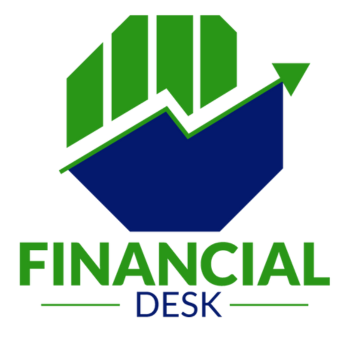Getting ready to become a homeowner, but feeling confused by all the complicated mortgage terms? Don’t worry! Homeowners should understand what makes a loan a mortgage to make an informed decision.
A mortgage is a loan used to buy a property, where the property acts as collateral for the loan. Mortgages have long repayment periods, large loan amounts, and use your home as security for the debt.
They typically have fixed interest rates and repayment periods of 5-30 years. Borrowers can choose between fixed or adjustable interest rates.
Key features distinguish a mortgage from other loans, including long repayment periods, large loan amounts, and the use of your home as security for the debt. To get the best mortgage loan option for your needs and financial situation, you must understand what makes a mortgage unique.
Defining a Mortgage Loan
A mortgage loan refers to a legal agreement in which a borrower pledges their property as collateral to secure a loan from a lender.
The mortgaged property acts as the security for the loan. If the borrower defaults on the loan payments, the lender has the right to seize the property to recover the amount owed.
Loan Characteristics
Mortgage loans typically have fixed interest rates and repayment periods of between 5 to 30 years. The borrower makes monthly repayments to the lender comprising both principal and interest charges.
The repayments are calculated to ensure the loan is fully repaid by the end of the term. Mortgage loans often require a down payment of at least 20% of the property value. The loan-to-value ratio refers to the size of the mortgage loan to the appraised value of the property. A lower LTV means the borrower has more equity in the property.
Repayment Options
Borrowers have the choice of different mortgage repayment options. The most common are fixed-rate mortgages with level repayments for the term and variable-rate mortgages where repayments change based on the current interest rate.
Borrowers can also consider accelerated biweekly repayments to pay the mortgage off sooner and private mortgages from non-bank lenders, often with more flexible terms. Selecting the right mortgage option depends on factors like repayment affordability, interest rate risk tolerance and the intended duration in the home.
A mortgage loan allows individuals to finance a property’s purchase with the property’s security. Choosing the right mortgage option is important for manageable repayments and building equity in your home.
Key Characteristics That Make a Loan a Mortgage
A mortgage loan is typically characterized by specific features that distinguish it from other types of loans.
Long-Term Repayment Period
A mortgage is designed to be repaid over an extended period, typically 15 to 30 years. The longer repayment period results in lower monthly payments, allowing borrowers to purchase properties that would otherwise be unaffordable if paid off over a short period.
The repayment period is outlined in the mortgage agreement between the borrower and the lender.
Secured by Real Property
The lender secures a mortgage loan with the real property being financed, allowing them to foreclose on the property if the borrower defaults on loan payments.
The property serves as collateral for the lender in case the borrower is unable to repay the loan. The lender will typically require an appraisal to determine the property value before approving a mortgage.
Fixed or Adjustable Interest Rate
Most mortgages have either a fixed or adjustable interest rate. A fixed-rate mortgage has an interest rate that remains unchanged for the life of the loan. An adjustable-rate mortgage has an interest rate that can change over time based on market interest rates.
Adjustable rate mortgages often start with lower payments but carry the risk of higher future payments if interest rates increase. Borrowers must decide which type of interest rate fits their financial needs.
Restrictions on Property Use
A mortgage contract will often place certain restrictions on the use of the property to protect the interests of the lender.
For example, the contract may not allow the borrower to make major changes to the property or use the property for commercial purposes. The lender wants to confirm the property retains its market value as collateral for the life of the loan.
What Are The 4 Types of Mortgage Loans?
The four main types of mortgage loans include conventional loans, Fixed-rate mortgage loans, Adjustable-rate mortgage loans, FHA Mortgages and VA loans.
Fixed-Rate Mortgages
A fixed-rate mortgage has an interest rate that remains the same for the life of the loan. This type of mortgage provides stable, predictable monthly payments that will not increase.
Homeowners who want to lock in an interest rate should consider a fixed-rate mortgage. The most common fixed-rate mortgages are 15-year and 30-year mortgages.
Adjustable-Rate Mortgages (ARMs)
An adjustable-rate mortgage (ARM) has an interest rate that changes periodically based on the market interest rates. ARMs often start with a fixed introductory period of 3 to 10 years with a low-interest rate.
After the initial period, the rate can adjust annually. ARM rates are often lower than fixed mortgage rates initially, but the variable rates make the monthly payments unpredictable. Borrowers take on the risk of higher payments if interest rates rise.
FHA Mortgages
An FHA mortgage is insured by the Federal Housing Administration (FHA). It allows borrowers to put down as little as 3.5% as a down payment on the home. FHA mortgages require an upfront mortgage insurance premium and annual mortgage insurance premiums for the life of the loan.
Yet, the FHA mortgage insurance makes lenders more willing to offer mortgages to borrowers who may not qualify for a conventional mortgage.
VA Mortgages
A VA mortgage is partially guaranteed by the U.S. Department of Veterans Affairs (VA) and does not require a down payment or private mortgage insurance. VA mortgages are available to eligible veterans, active military members, and surviving spouses.
VA mortgages typically have lower interest rates than conventional mortgages and flexible underwriting guidelines. The VA charges a funding fee for these mortgages, which can be rolled into the total mortgage amount.
The four common types of mortgages—fixed-rate, adjustable-rate, FHA, and VA—have different features to suit different needs. Your unique financial circumstances can help you choose a mortgage that meets your needs.
FAQ: What Makes a Loan a Mortgage?
What is a mortgage?
A mortgage is a loan that finances the purchase of real estate, typically a home, with the property being purchased serving as collateral. Mortgages allow buyers to pay for a home over time through monthly instalments at an agreed interest rate.
How is a mortgage different from a standard loan?
Unlike a standard loan, a mortgage is secured by the property being financed. This means the lender can foreclose on the home if the borrower defaults on payments.
Mortgages also typically have lower interest rates and longer repayment terms than unsecured loans. The interest paid on mortgages is usually tax deductible.
What are the components of a mortgage?
The principal amount is the amount borrowed. The interest rate determines the cost of borrowing the money. The amortization period is the length of time over which the mortgage will be repaid.
The term refers to the length of time between the start of the mortgage and when the entire principal amount comes due. The buyer pays the down payment upfront and borrows the remainder through the mortgage.
What are the different types of mortgages?
The most common types include fixed-rate mortgages, where the interest rate stays the same for the term of the mortgage, and variable-rate mortgages, where the interest rate changes based on market rates.
Shorter-term mortgages like 3- or 5-year terms have lower interest rates but require more frequent refinancing. Longer-term mortgages up to 30 years have higher rates but more stable payments.
A mortgage is a secured loan used to finance real estate with specific terms like interest, amortization and down payments that differentiate it from a standard personal loan. The type of mortgage and its components can have a significant impact on the total cost of borrowing and monthly payments.
Conclusion
A mortgage differs from a regular loan in several key ways. The amount borrowed is much larger, the home purchased serves as collateral, and the loan term stretches over decades instead of years.
Mortgages also come with additional costs like home appraisals, inspections, and title searches to account for the property involved. While a mortgage is still debt, the ability to build home equity over time through principal payments makes it an attractive option for those looking to buy real estate.
With an understanding of what makes a loan a mortgage, you can determine if this type of loan aligns with your homeownership goals. Carefully weigh the benefits and drawbacks as you make plans to finance the purchase of your future home.







